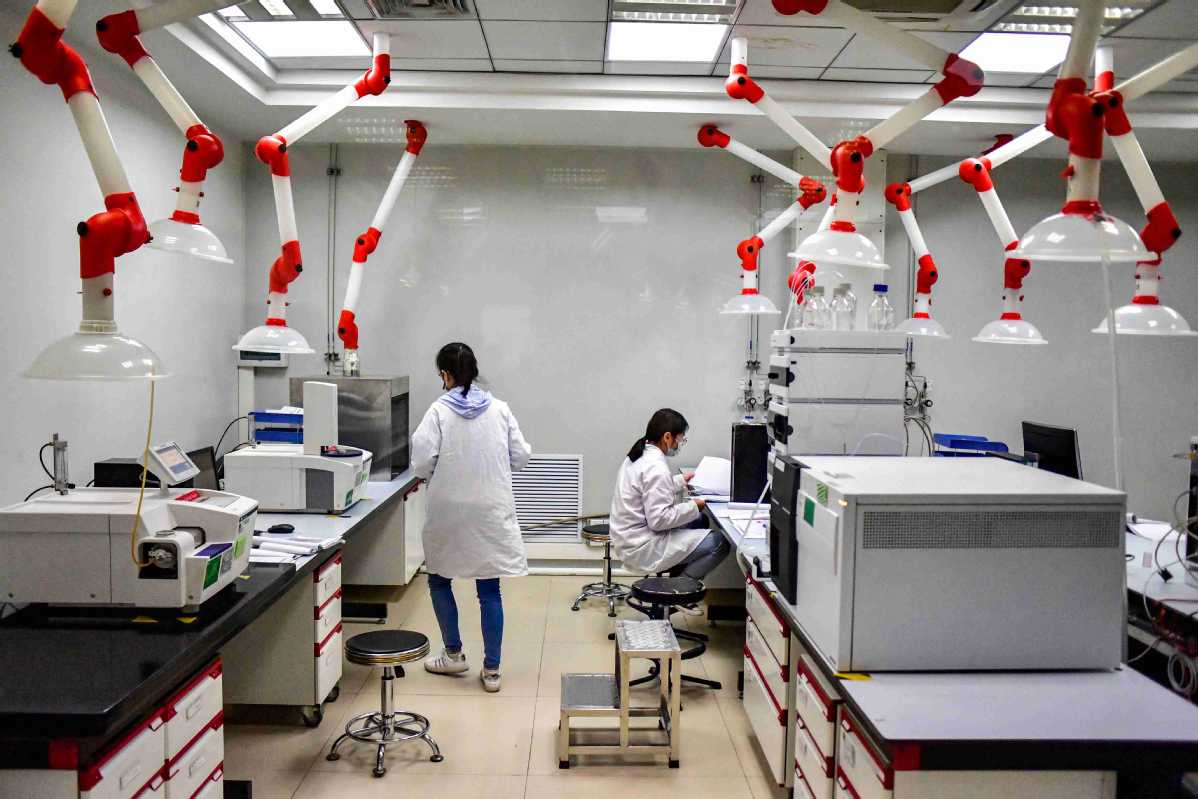Local private firms to step up innovation


Will make vaccines available to COVAX participants in global COVID-19 fight
At a time when the Delta variant is posing a rising risk to health systems, Gavi, the Vaccine Alliance, has recently announced advance purchase agreements with Chinese drugmakers Sinopharm and Sinovac for their inactivated virus vaccines against COVID-19.
The agreements will make 110 million doses immediately available to participants of COVAX, with options for additional doses.
Gavi, an international organization co-founded by the Bill & Melinda Gates Foundation in 2000, is helping lead COVAX-a global risk-sharing mechanism for pooled procurement and equitable distribution of COVID-19 vaccines. Previously in June, it just signed an APA with another Chinese enterprise-Clover Biopharmaceuticals.
Pending an emergency use listing from the World Health Organization for its COVID-19 vaccine candidate, Clover is to provide up to 414 million doses of its protein-based COVID-19 vaccine candidate for procurement through COVAX, including 64 million doses available in 2021.
While Sinopharm is a State-owned giant, both Sinovac and Clover are not State-owned enterprises, and represent a growing group of private pharmaceutical and biotech companies in China rising to significance with impressive innovation capabilities, cutting-edge technologies and robust R&D pipelines.
There has been exponential growth in China's pharmaceutical sector in the past decade, especially with the springing up of non-State-owned companies with rapidly increasing capabilities of in-house drug discovery and development, thanks to the evolution of the Chinese biopharma innovation ecosystem that enjoys favorable policy conditions, growing research and development capabilities and a positive funding environment.
"The non-State-owned enterprises enjoy a positive operational environment in China. This is especially the case for innovative biotech companies," said Wei Dong, CEO of Edi-Gene, a Beijing-based private biotech company developing genome editing technologies to accelerate drug discovery and develop novel therapeutics.
"The government is introducing favorable policies and constantly improving legal systems for such enterprises," Wei said.
Drug sector regulatory reforms since 2015 and the regular National Reimbursement Drug List update mechanism starting from 2017 have fostered innovation in the pharmaceutical and biotechnology sector, he said, taking the cutting-edge cell and gene therapy sector as an example.
According to a Deloitte white paper, China has already become a hotbed for CGT development driven by strong policy support, including a series of progressive policies to strengthen regulations in the CGT sector released by the National Medical Products Administration and the National Health Commission.
More examples can be seen in the increase in out-licensing cases of Chinese private pharmaceutical and biotech companies' self-developed drug or drug candidates to big-name foreign companies.
Jacobio Pharmaceuticals, founded in 2015, inked a licensing agreement with AbbVie in May 2020 to develop and commercialize SHP2 inhibitors.
The Chinese startup is the second drug developer worldwide to engage in clinical development of an SHP2 inhibitor drug candidate, following Novartis. As of late June, there were only six companies worldwide with SHP2 inhibitors undergoing clinical trials. SHP2 inhibitors are expected to have a substantial clinical effect in cancer and immunity disease treatments.
InnoCare Pharma Ltd, also founded in 2015, announced in mid-July a license and collaboration agreement with US-based Biogen Inc-a recognized leader in neuroscience-for orelabrutinib, a drug candidate for the potential treatment of multiple sclerosis.
Non-State-owned companies such as BeiGene, Innovent and Junshi Biosciences have all out-licensed some rights to multinational companies for their self-developed PD-1s, a type of cancer treatment.
Wei said such cross-border deals show that medicines developed by Chinese biotech companies are recognized and welcomed by the global market with more affordable financial burdens for patients.
Joshua Liang, CEO of Clover, said many Chinese biotech companies-mostly non-State-owned firms-have been able to quickly become large and fully integrated biotech companies, which is quite rare in Western countries.
"We've been able to build from scratch with integrated in-house capabilities, including large-scale manufacturing, in-house research laboratories as well as full service, clinical development and operational teams," Liang said.
He added that there has been a lot more recognition and focus by the central government on the importance of innovative and novel medicines over the past five years, which has led to the continued and growing support of private pharmaceutical and biotech companies.
"There has been a lot of government interest in supporting companies like us to build manufacturing facilities and new research laboratories," he said, adding that in terms of the regulatory landscape, there are also a lot of big changes.




































